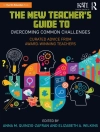An engaging examination of current issues and practices involved in assessing young children
A highly readable integration of the latest assessment practices and policies, this text includes valuable information regarding young children with special needs and English language learners—topics that are insufficiently addressed in other assessment texts. Focusing on practical applications of key concepts, Multifaceted Assessment for Early Childhood Education provides a knowledge base of what every early childhood teacher should know about assessing young children.
Key Features
- Comprehensive coverage examines the full range of assessments, including formative, summative, authentic, and standardized.
- Cases in Point provide practical implications and examples from real life.
- Objectives for Learning alert students as to central concepts and provide guidance for reading and studying.
- Discussion Questions encourage analysis and class discussions, promoting higher order thinking on the topics.
Ancillaries
Password-protected instructor resources, available, feature Power Point slides, a test bank, Internet resources, and additional activities.
Inhaltsverzeichnis
Preface
Acknowledgments
Part I. Background, Current Issues, and Interpretation of Assessments in Early Childhood
Chapter 1. History and Framework of Early Education and the Assessment of Young Children
Chapter 2. Issues and Current Practice for Assessing Young Children
Chapter 3. Understanding Early Childhood Assessment Scores
Part II. Formative and Summative Assessments and Tests
Chapter 4. Informal Evaluations of Young Children
Chapter 5. Teacher-Constructed Scales and Checklists
Chapter 6. Summative Measurements of Educational Outcomes
Part III. Individual Screening Measures and Full Assessments
Chapter 7. Developmental Assessments of Infants, Toddlers, and Preschoolers
Chapter 8. Cognitive Assessment of Young Children
Chapter 9. Standardized Assessments of the Early Academic Skills of Young Children
Part IV. Parent Communication and Special Needs Children
Chapter 10. Evaluating, Grading, and Reporting to Parents
Chapter 11. Identification of Young Children With Special Needs
Chapter 12. Family Involvement and Engagement
Part V. Evaluation of Early Childhood Programs and Schools
Chapter 13. Program Evaluation and Planning
Glossary
References
Index
About the Author
Über den Autor
Robert Wright earned a Bachelor’s degree in Chemistry from Kutztown University of Pennsylvania in 1966, and began teaching high school science. A few years later in 1969 he earned a Masters degree in school counseling from West Chester University and was employed as a public school counselor, first with high school students and later with middle school students. In 1974 he completed a doctorate (Ph.D.) in Educational Psychology with specializations in child & adolescent development and educational measurement from Temple University. As part of that degree he completed a clinical fellowship in rehabilitation counseling at Moss Hospital, part of the Albert Einstein Medical Center (Philadelphia). Following graduation he completed advanced studies in school psychology at Lehigh University. Professor Wright has taught counseling and supervised counseling interns and has also taught educational measurement, and educational statistics & research for graduate students in counseling. He is a member of the American Counseling Association, the American School Counselor Association, the American Psychological Association (Division 17, counseling psychology), the Association for Counselor Education and Supervision, and the American Educational Research Association. He is professionally licensed to practice in Pennsylvania. During his career Professor Wright chaired 114 doctoral dissertations, published and presented over 120 articles and paper presentations and has had four books published.












